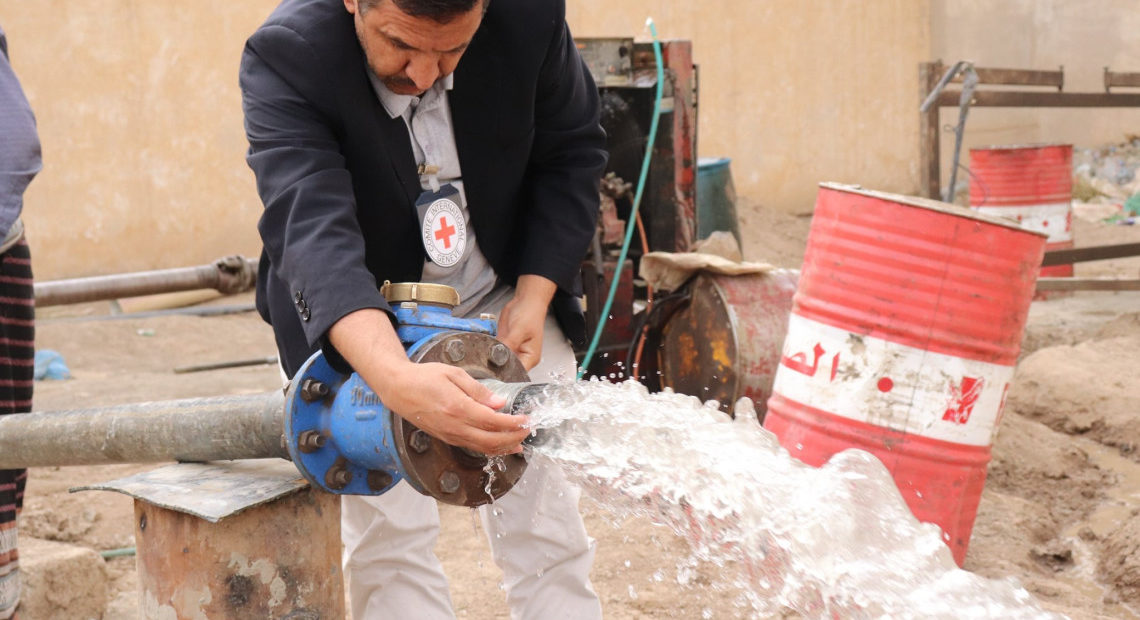Several underlying causes are contributing to exacerbating the water crisis in Yemen, including the proliferation of Qat as a cash crop which consumes more than 40% of Yemen’s total renewable water resources and 32% of all groundwater withdrawals. The rate of groundwater overdraft is currently much higher (twice) than the recharge rate, and is increasing, bringing depletion of water reserves, inequity, and shortages.
- It is estimated that 17.8 million people lack access to safe water and adequate sanitation services in Yemen (OCHA).
- The current water network reaches less than 30% of the Yemeni population. Thus, millions of Yemenis, including women and children need to walk for miles to fetch water.
- Lack of access to clean water has caused major health outbreaks, including cholera and acute watery diarrhea that started in October 2016, leading to the country’s worst cholera outbreak in modern history (2.5 million cases reported, and more than 4,000 people have died in the Yemen cholera outbreak)
The ICRC has been addressing the most urgent needs through the repair of boreholes and water stations, distributing water to detention facilities to reduce water-related disease outbreaks, and rehabilitating sewage systems. It also supports the maintenance of water networks and the provision of chlorine tablets, fuel, generators, and maintenance tools to local water and sanitation corporations (LWSC) to ensure continuous provision of safe water.
In 2021:
- Over 5 million people benefited from the ICRC’s water and sanitation activities in different parts of the country.
- 3 million liters of water were donated and distributed to one prison and one hospital through an emergency water trucking response.
- 17 generators with a total power of 1,567 KVA were donated to different water projects, local water boards, prisons, and health facilities.
- Three boreholes were rehabilitated with the wall construction and 4 solar systems were donated to different water supply and health facilities.
- The ICRC rehabilitated 39 facilities, including health, water, and detention facilities, YRCS branches, and an IDP camp.
- 72 electrical works were carried out in 11 water projects, 21 health facilities, and another 6 local facilities.
- 1,228,577 chlorine tablets were donated to health facilities and local water boards, along with other water treatment & disinfectant material.



Comments